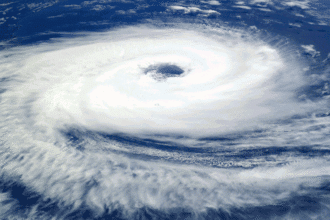In an important foreign policy shift, the US suspends the shipment of weapons to Ukraine, with the reason that it has reexamined its priorities regarding defense barriers of the nation. Announced after a review by the Department of Defense, the announcement has brought new doubt to an already tense field of war. The result of this hiatus could have serious impacts on Ukraine and international security due to an increase in Russian aggression and the uncertain support of the parties in the West.
- What Made the US Hold Military Aid?
- What Is the US-Ukraine Relationship?
- What would the Implications be on the Defence of Ukraine?
- Does the Strategic Focus of the US Military Change?
- What has the World Community Done?
- What Part Did the US-Ukraine Resource Trade Play?
- What are the strategic risks of the suspension?
- Would this be a precedent for future US foreign aid?
- Final Thoughts
What Made the US Hold Military Aid?
The White House explained that the halt of some weapons deliveries is meant to place the interests of America first. The action comes after a review in the Department of Defense on the support of the U.S. military in other countries. During the review of critical deliveries, such as the air defense missiles, precision-guided munitions are said to be stalled.
This move comes after increasing reports that massive military supplies to Ukraine are robbing the U.S. of its equities. Other Trump officials accuse that the preparedness of the American defense is being sacrificed in the process. Thus, a need to re-evaluate the supply allocation has gained high urgency. Here is the link to our article on Cross-Border Weapon Smuggling
What Is the US-Ukraine Relationship?
Even though the relationship between President Trump and Ukrainian President Volodymyr Zelensky was frictious at an earlier stage, there were also times of cooperation between the two leaders. The duo was last seen in the Netherlands, where they met at the NATO summit, and Trump has indicated that they are going to check whether they can get some of the weapons available.
Before then, Trump had, however, held up military aid and suspended sharing intelligence with Ukraine in March. Although both steps were reversed later, they indicate the strain in the strategic association. The recent stoppage raises even more questions about its reliability of the long-term U.S. support.
What would the Implications be on the Defence of Ukraine?
Since the full-scale invasion of Russia in February 2022, Ukraine has significantly depended on Western assistance. Its involvement and offensive as well as defensive operations have been maintained by tens of billions of dollars of U.S. assistance. The inability of the US to continue supplying weapons to Ukraine at this stage of the war might be a very serious setback to the military defense of Ukraine.
Last weekend, Russia carried out one of its biggest air attacks, having used more than 500 weapons, including drones and ballistic missiles. Ukraine, in turn, must get access to high-technology arms regularly to sustain its defense lines and conduct counterattacks. Any hindrance in deliveries may jeopardize their combat ground. Here is the link to our article on Ukraine Policy Shift
Does the Strategic Focus of the US Military Change?
Indeed, the Pentagon has of late confirmed a wider scale of restructuring of military priorities. Elbridge Colby, the Undersecretary of Defense Policy, added that the U.S. is already working to ensure that it maintains readiness to meet other defense requirements, although they are committed to supporting Ukraine.
This transition implies that the U.S. does not only contemplate the threat in Eastern Europe, since, perhaps, it is located in the Middle East or the Indo-Pacific regions. One remark was about the military capabilities of America, and Iranian nuclear installations were mentioned as a target of such abilities; hence, it is not only Iranian aggression that the attention is paid to.
What has the World Community Done?
It has been mixed internationally. European leaders are not sitting on their hands: on 12 November, GermanChancellorr Angela Merkel promised to explore alternative sources of long-term sustainable financing. French President Emmanuel Macron spoke for two hours over the phone to Russian President Vladimir Putin, and it was the first talk between the leaders in more than two years. Macron tried to organize a cease-fire, whereas Putin accused the West of the continuous conflict.
This is a diplomatic signal that Europe might be planning decrease level of the U.S. influence over Ukraine and might start finding alternative solutions to mitigate the war and keep the Russian impact within its borders.
What Part Did the US-Ukraine Resource Trade Play?
There was also an agreement signed between the U.S. and Ukraine in late April where the U.S was given access to the mineral reserves of Ukraine in exchange for military support. The transaction highlights the use of American assistance by Ukraine and casts doubt over the suspension and its possible impact on prosperous projects that might combine both countries.
In case the US delays the delivery of the weapons to Ukraine over a substantial period, it can also affect the agreements on economic support and sharing resources between the two countries in terms of the conditions and their implementation.
What are the strategic risks of the suspension?
The suspension timing is quite crucial. The Russian troops intensified the assault, which is an indication of a change in the course of the Russian war. In the meantime, Ukrainian troops are trying to preserve their power over strategic areas, yet the lack of access to sophisticated weapons may undermine their efficiency.
There is also the issue of Russia waging attacks deep behind the lines, such as the lethal attack on a factory in the city of Izhevsk, which is more than 1,000 km past the Ukrainian border. Such tendencies point to the increased geographical range of the war and necessitate prolonged defense assistance.
Would this be a precedent for future US foreign aid?
When held, the suspension can become a trend toward isolationist foreign policy, particularly in a Trump-led administration. The focus on the motto of the movement, which proclaims America First, will appeal to a vast number of voters yet undermine alliances that have existed over long periods.
Proceeding with aid or aid packages to countries involved in conflict areas in the future might face the same severe test and might change the future scenario of the mode and approach of the U.S. in international arenas. Such progress may further encourage opponents who may feel that the U.S. is withdrawing from international obligations.
Final Thoughts
The declaration that the US halts weapons shipments to Ukraine represents a major shift in American foreign policy and a potential turning point in modern warfare. As the Trump-led reassessment of military priorities moves to replace the Biden-era aid structure, Ukraine faces growing uncertainty. This development may signal a temporary pause—or the beginning of a complete withdrawal strategy—with high stakes on all sides. The global community is closely watching how U.S. lawmakers and international allies respond. Whether the US halts weapons shipments to Ukraine temporarily or permanently, the move will likely influence both Ukraine’s war effort and America’s global standing.








